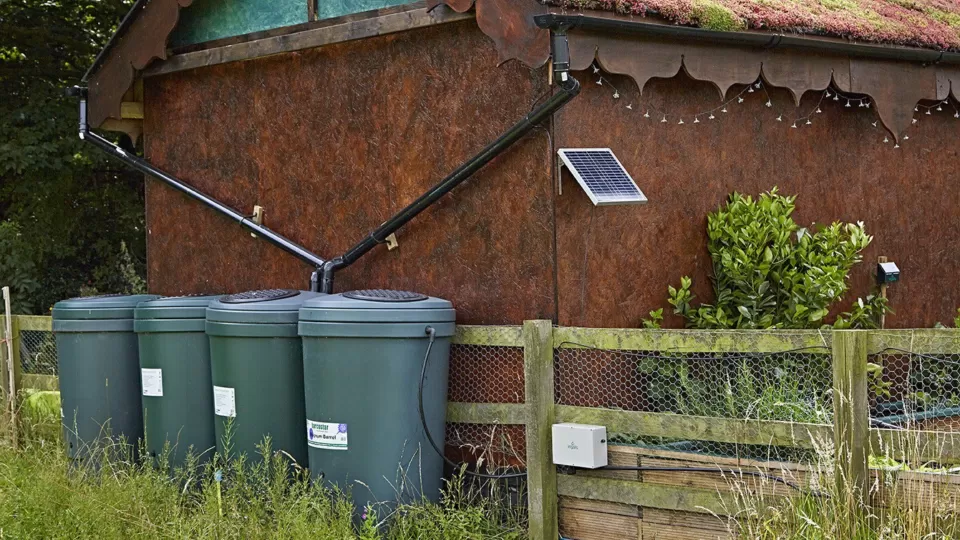5 Eco-friendly ways to re-use your household waste in the garden
Ahead of Recycling Week on 23rd-29th September, we’re bringing you our top tips on how to re-use your everyday household waste items in the garden – the perfect way to recycle, reduce your waste, and create an eco-friendly garden environment!
Ditch the plastic pots
Plants will grow in practically anything, so there’s no need to continue hoarding plastic pots that break and snap in the green house anymore! There are plenty of other biodegradable options which will save you time and money; including old newspapers, toilet roll inners and egg trays. When you plant them out in the garden, you can bury the whole thing in the soil and leave them to compost down without damaging the environment and also helping to protect your plants.
Repurposing items already available in your home can also add a unique aspect to your garden and allow you to get creative. Clean out and plant up household waste like tins, yogurt pots, cups, boots, milk cartons- whatever you can find. Get the kids involved as well by painting faces onto hollow egg shells, sprinkling in some cress seeds and putting them in an egg box on the windowsill - in a few days they will grow cress hair!
DIY compost bin
Help your plants to thrive and keep your local landfill site happy by transforming your kitchen and garden waste into compost. Inexpensive and a natural process, compost is a slow release fertilizer which returns valuable nutrients to the soil to maintain its quality, improving plant growth and creating better yields. However, this can be done without splurging out on the latest in compost bin fashion.

A great way to keep your garden eco-friendly and sustainable, you can easily create your own DIY compost bin using old pallets. Simply level out an area of bare soil, add a base of chicken wire (to protect against rats), tip four pallets onto their sides and secure them in place with strong garden wire. The gaps will allow the compost to breathe whilst staying protected from the wind, whilst any nutrients released through rainfall will be transferred into the soil below. Don’t forget- you can also compost unusual items including: tea bags, coffee grounds, eggshells and cardboard!
Water
Reducing your water usage is good for the environment and helps save money on the bills. Rainwater harvesting and greywater recycling, collected through drainage from your sinks, baths and showers can be relatively clean – depending on how much you’ve lathered up. This can be easily stored through installing water butts which will provide water whenever you’re in need of it.

Additionally, finding a way to get the water straight to the plant roots without the need for electricity or a tap can provide an eco-friendly way of watering your plants. Using a weather responsive SMART irrigation system, such as Irrigatia, can detect the weather and alter watering according to the conditions and the season. Not only does this provide plants with the precise irrigation they need to help them thrive, it also prevents water wastage in your garden.
Help the wildlife
Whilst you’re out gardening, you’d be amazed at how much your local garden wildlife can actually be helping to keep your garden in tip top condition. Bees and other insects help to pollinate your garden whilst birds, toads and hedgehogs protect your plants by eating slugs and snails.

Give them something back for all their hard work by using recycled materials to make your own bird box from salvaged wood pieces, hedgehog house from bricks and leaves, or an insect shelter by filling a clean plastic bottle or tin can with twigs, straws and leaves. You can also create feeding stations using old teacups, hollowed out pumpkins or pinecones and even a bird bath from old pie plates, casserole dishes and serving bowls – they’ll be singing your praises!
Protect your plants
As we’re getting closer to the cold months ahead, keep your plants protected using recycled products. Plastic bottles are the ideal component to create mini-cloches which protect your seedlings from harsh weather, slugs and snails. Additionally, save on cold frames by building your own using discarded windows which will allow you to enjoy a longer growing season.

You can also stop birds raiding your vegetable garden by hanging your old CDs and DVDs on a washing line across patches. Alternatively, recycled wind chimes made from makeshift items including cutlery or sticks can do this trick – but only if the neighbours don’t object!
